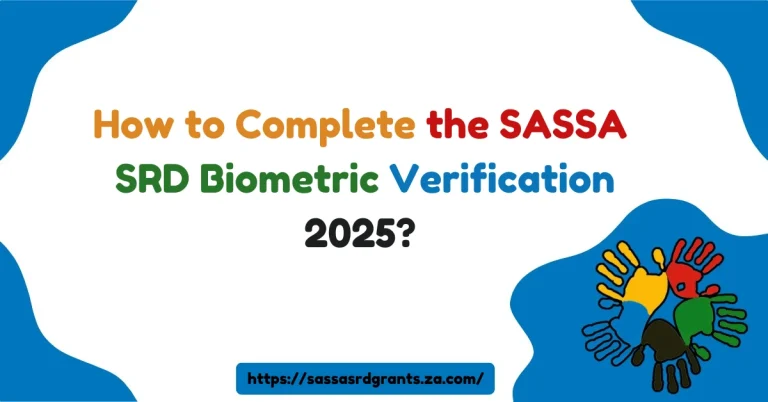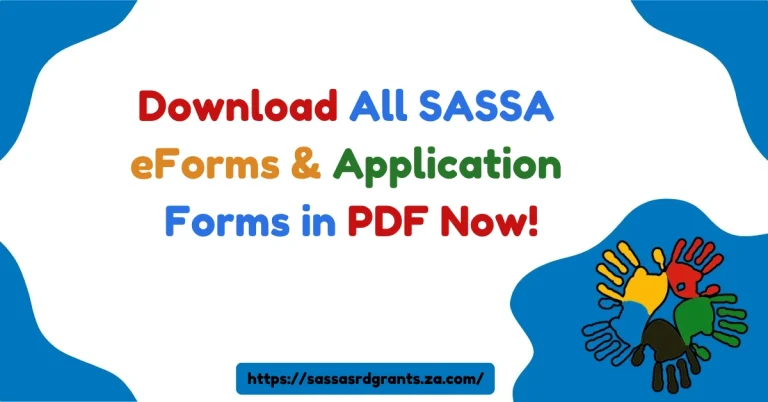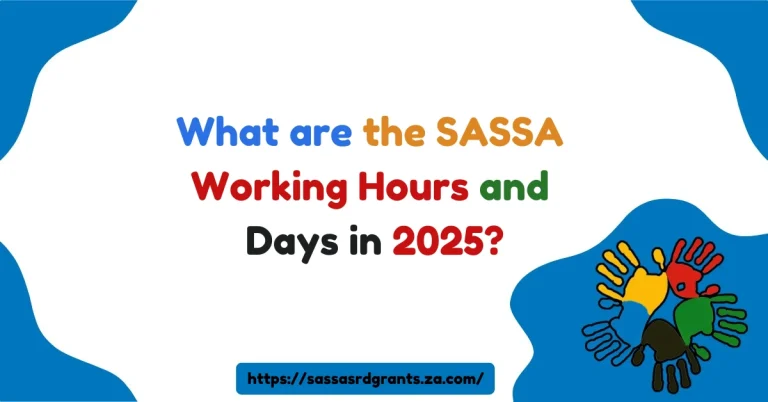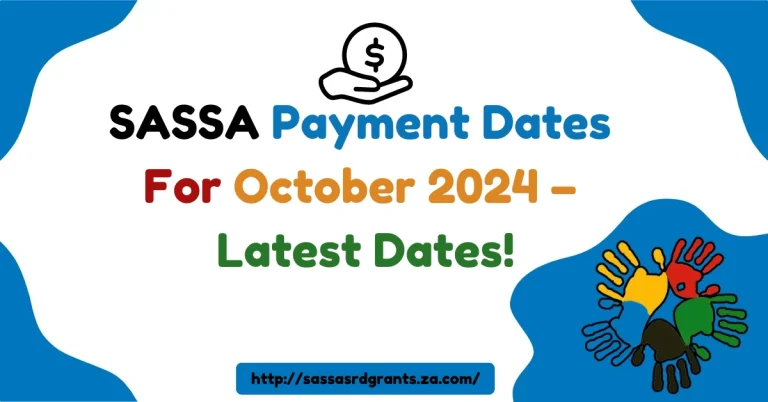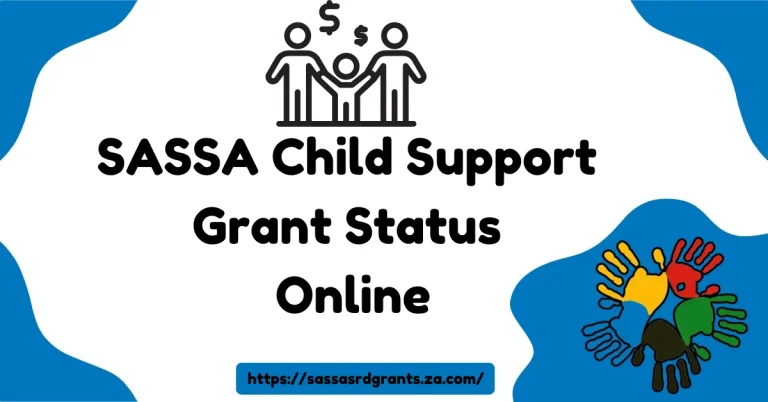EasyPay Loans SASSA
In South Africa, millions of citizens rely on social grants distributed by the South African Social Security Agency (SASSA) to meet their basic needs.
While these grants provide crucial support, there are times when beneficiaries may require additional financial assistance.
This is where EasyPay loans for SASSA grant recipients come into play.
In this comprehensive guide, we’ll explore everything you need to know about EasyPay loans, their benefits, application process, and important considerations for SASSA beneficiaries.
[sassa_status]
Understanding SASSA and Social Grants
Before delving into the specifics of EasyPay loans, it’s essential to understand the role of SASSA and the various social grants available to eligible South Africans.
SASSA, established in 2005, is responsible for administering social grants to millions of citizens. These grants include:
- Old Age Grant
- Disability Grant
- Child Support Grant
- Foster Child Grant
- Care Dependency Grant
- War Veterans Grant
- Grant-in-Aid
These grants serve as a vital lifeline for many South Africans, helping to alleviate poverty and provide basic necessities.
However, the fixed nature of these grants can sometimes leave beneficiaries struggling to cope with unexpected expenses or financial emergencies.
What Are EasyPay Loans?
EasyPay loans are short-term financial solutions specifically designed for SASSA grant recipients.
These loans allow beneficiaries to borrow money against their future grant payments, providing quick access to funds when needed.
EasyPay loans are offered by various financial institutions and are regulated by the National Credit Act to ensure fair lending practices.
Key features of EasyPay loans include:
- Short repayment periods: Typically ranging from 1 to 6 months
- Smaller loan amounts: Usually capped at a percentage of the borrower’s monthly grant
- Quick approval process: Often within 24 hours
- Flexible repayment options: Deductions can be made directly from the borrower’s SASSA grant
Benefits of EasyPay Loans for SASSA Recipients
EasyPay loans offer several advantages to SASSA grant beneficiaries:
- Financial flexibility: These loans provide a buffer for unexpected expenses or emergencies, allowing recipients to manage their finances more effectively.
- Accessibility: EasyPay loans are typically easier to obtain than traditional bank loans, especially for those with limited credit history.
- Quick turnaround: The application and approval process is usually fast, providing funds when they’re needed most.
- Regulated lending: As these loans are governed by the National Credit Act, borrowers are protected from predatory lending practices.
- Building credit history: Responsible use of EasyPay loans can help recipients establish or improve their credit scores.
How to Apply for an EasyPay Loan
The application process for an EasyPay loan is designed to be straightforward and accessible. Here’s a step-by-step guide:
- Gather necessary documents: You’ll typically need your ID, proof of address, and your latest SASSA grant statement.
- Choose a lender: Research different financial institutions offering EasyPay loans to find the best terms and rates.
- Submit an application: This can often be done online, over the phone, or in person at a branch.
- Provide consent: You’ll need to give permission for the lender to access your SASSA information and deduct repayments from your grant.
- Wait for approval: Most lenders process applications quickly, often within 24 hours.
- Review and sign the agreement: Carefully read the terms and conditions before accepting the loan.
- Receive funds: If approved, the loan amount will be deposited into your account or made available for collection.
Important Considerations
While EasyPay loans can provide much-needed financial relief, it’s crucial to approach them responsibly. Here are some key factors to consider:
- Interest rates and fees: Understand the total cost of the loan, including interest and any additional charges.
- Repayment terms: Ensure you can comfortably afford the repayments without compromising your essential needs.
- Loan amount: Borrow only what you need and can realistically repay.
- Alternative options: Explore other financial assistance programs or support services before committing to a loan.
- Impact on future grants: Remember that loan repayments will reduce your available grant money in the coming months.
Responsible Borrowing Practices
To make the most of EasyPay loans while maintaining financial stability, consider these responsible borrowing practices:
- Budgeting: Create a detailed budget to understand your income and expenses before taking out a loan.
- Emergency fund: If possible, try to set aside a small portion of your grant each month for unexpected expenses.
- Comparing offers: Shop around for the best loan terms and interest rates among different lenders.
- Reading the fine print: Ensure you understand all terms and conditions before agreeing to a loan.
- Timely repayments: Make your loan payments on time to avoid additional fees and maintain a good credit standing.
- Avoiding multiple loans: Try not to take out multiple loans simultaneously, as this can lead to a debt spiral.
Alternatives to EasyPay Loans
While EasyPay loans can be helpful, it’s worth exploring other financial assistance options:
- SASSA crisis payments: In some cases, SASSA may provide additional support for emergencies.
- Community-based organizations: Local NGOs or charitable organizations may offer financial assistance or support services.
- Government programs: Explore other government initiatives that might provide financial aid or subsidies.
- Cooperative savings groups: Consider joining or forming a savings group with other SASSA recipients to pool resources.
- Skill development: Look into free or low-cost training programs that could help you generate additional income.
SASSA Beneficiaries
Improving financial literacy among SASSA grant recipients is crucial for long-term financial well-being. Here are some key areas of focus:
- Basic budgeting skills: Learning to create and stick to a budget is essential for managing limited resources effectively.
- Understanding credit: Educating beneficiaries about credit scores, interest rates, and responsible borrowing practices.
- Savings strategies: Teaching simple savings techniques, even with limited income, can help build financial resilience.
- Consumer rights: Informing recipients about their rights under the National Credit Act and how to avoid predatory lending.
- Long-term financial planning: Encouraging beneficiaries to think beyond immediate needs and plan for the future.
The Future of EasyPay Loans
As South Africa continues to address issues of poverty and inequality, the role of financial services like EasyPay loans is likely to evolve. Here are some potential developments to watch:
- Increased regulation: Further measures to protect vulnerable borrowers and ensure fair lending practices.
- Technology integration: The use of mobile banking and digital platforms to make loans more accessible and manageable.
- Financial education initiatives: More comprehensive programs to improve financial literacy among grant recipients.
- Alternative credit scoring: Development of new methods to assess creditworthiness for those with limited financial history.
- Expanded financial products: Introduction of more diverse financial services tailored to the needs of SASSA beneficiaries.
Frequently Asked Questions (FAQ’s)
To help you better understand EasyPay loans for SASSA recipients, here are answers to some of the most commonly asked questions:
1. Who is Eligible for an EasyPay loan?
EasyPay loans are typically available to individuals who receive SASSA grants.
This includes recipients of Old Age Grants, Disability Grants, Child Support Grants, and other SASSA-administered social grants. However, eligibility criteria may vary slightly between lenders.
2. How much can I borrow with an EasyPay loan?
The loan amount usually depends on the type and value of your SASSA grant. Most lenders offer loans up to a certain percentage of your monthly grant, often ranging from 25% to 50%.
For example, if you receive a grant of R1,860 per month, you might be eligible to borrow between R465 and R930.
3. What documents do I need to apply for an EasyPay loan?
Typically, you’ll need to provide:
- A valid South African ID
- Proof of address (not older than 3 months)
- Your most recent SASSA grant statement
- Bank statements (if applicable)
4. How long does it take to get approved for an EasyPay loan?
Most lenders process EasyPay loan applications quickly, often within 24 to 48 hours. Some may even offer same-day approval and disbursement of funds.
5. How do I repay an EasyPay loan?
Repayments are usually deducted directly from your SASSA grant on your regular payment date. This automated process ensures timely repayments and reduces the risk of defaulting.
6. What are the interest rates on EasyPay loans?
Interest rates can vary between lenders but are regulated by the National Credit Act. As of 2024, the maximum interest rate for short-term credit transactions is 5% per month on the first loan and 3% per month on subsequent loans.
7. Can I apply for an EasyPay loan if I have bad credit?
Many EasyPay loan providers consider factors beyond traditional credit scores, focusing more on your regular SASSA grant income.
However, having significant existing debt or a history of loan defaults may affect your application.
8. Is it possible to get an EasyPay loan online?
Yes, many lenders offer online applications for EasyPay loans. This makes the process more convenient, especially for those with limited mobility or living in remote areas.
9. Can I have more than one EasyPay loan at a time?
While it’s technically possible to have multiple loans, it’s generally not recommended. Taking on too much debt can lead to financial strain and may violate the terms of some loan agreements.
10. What happens if I can’t repay my EasyPay loan?
If you’re struggling to repay your loan, it’s crucial to contact your lender immediately. They may be able to offer a revised repayment plan.
Failing to repay can lead to additional fees, negative credit reporting, and legal action in severe cases.
11. Are EasyPay loans safe and regulated?
Yes, EasyPay loans are regulated by the National Credit Act and overseen by the National Credit Regulator.
This provides protection for borrowers against unfair practices. However, it’s still important to borrow responsibly and understand the terms of your loan.
12. Can I pay off my EasyPay loan early?
Most lenders allow early repayment of EasyPay loans. In fact, paying off your loan early can save you money on interest. Check with your specific lender for their early repayment policies.
13. Will taking an EasyPay loan affect my SASSA grant?
Taking an EasyPay loan doesn’t affect your eligibility for SASSA grants. However, the loan repayments will reduce the amount of grant money you receive each month for the duration of the loan term.
14. What should I do if I’m denied an EasyPay loan?
If your application is denied, ask the lender for the reasons. This can help you understand what to improve for future applications.
Consider exploring alternative financial assistance options or seeking advice from a financial counselor.
15. Can I use an EasyPay loan for any purpose?
Generally, yes. EasyPay loans are typically not restricted to specific uses. However, it’s advisable to use these loans for important or emergency expenses rather than non-essential purchases.
Remember, while EasyPay loans can provide helpful financial support, it’s crucial to borrow responsibly and consider all alternatives before taking on debt.
If you’re unsure about any aspect of an EasyPay loan, don’t hesitate to ask the lender for clarification or seek advice from a financial professional
Conclusion
EasyPay loans for SASSA recipients represent an important tool in the broader landscape of financial inclusion in South Africa.
When used responsibly, these loans can provide crucial support during times of financial stress, helping grant beneficiaries manage unexpected expenses and bridge short-term financial gaps.
However, it’s essential for SASSA recipients to approach these loans with caution and a clear understanding of the terms and implications.
By combining access to financial services like EasyPay loans with improved financial education and responsible borrowing practices, grant recipients can work towards greater financial stability and resilience.
As South Africa continues to address the challenges of poverty and inequality, the evolution of financial services for vulnerable populations will play a crucial role.
By striking a balance between accessibility and protection, initiatives like EasyPay loans can contribute to a more inclusive financial ecosystem that supports the needs of all South Africans.
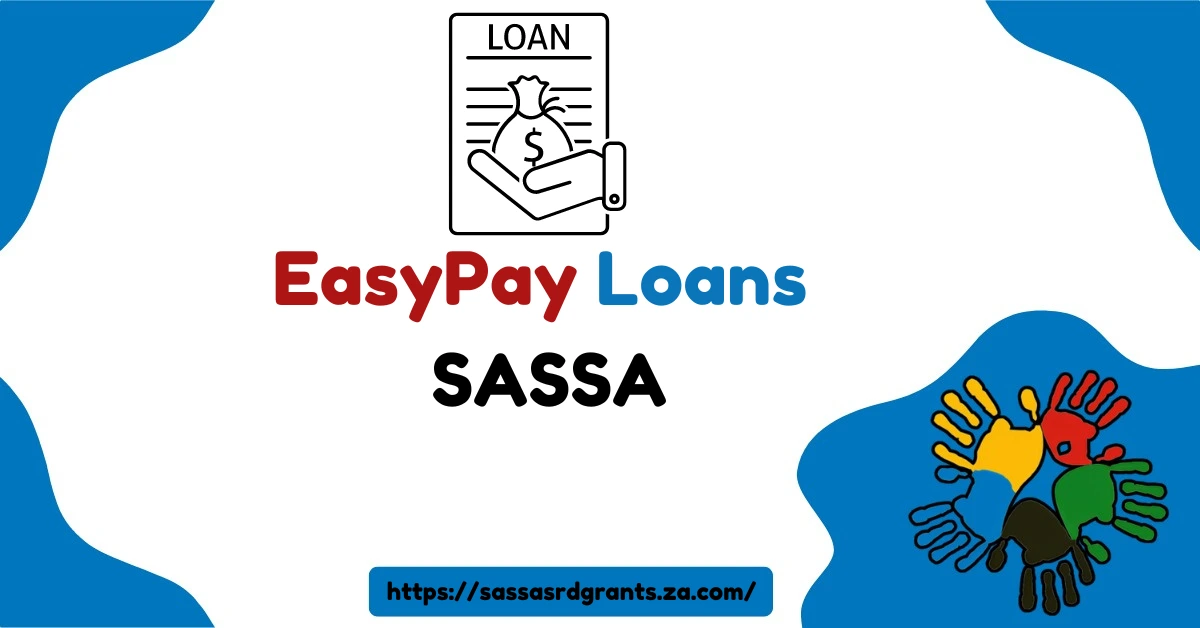
![SASSA Confirmed Payment Dates for September [2024]](https://sassasrdgrants.za.com/wp-content/uploads/2024/09/SASSA-Confirmed-Payment-Dates-for-September-2024-768x402.webp)
